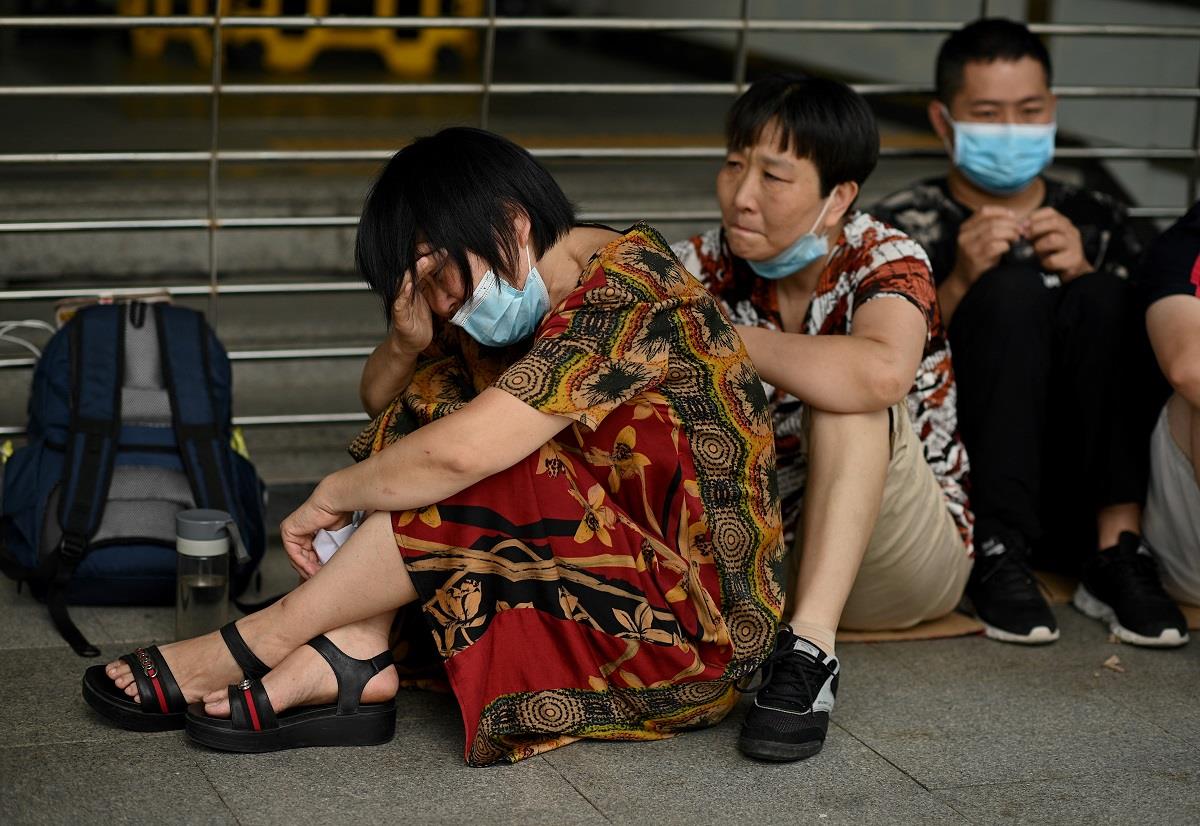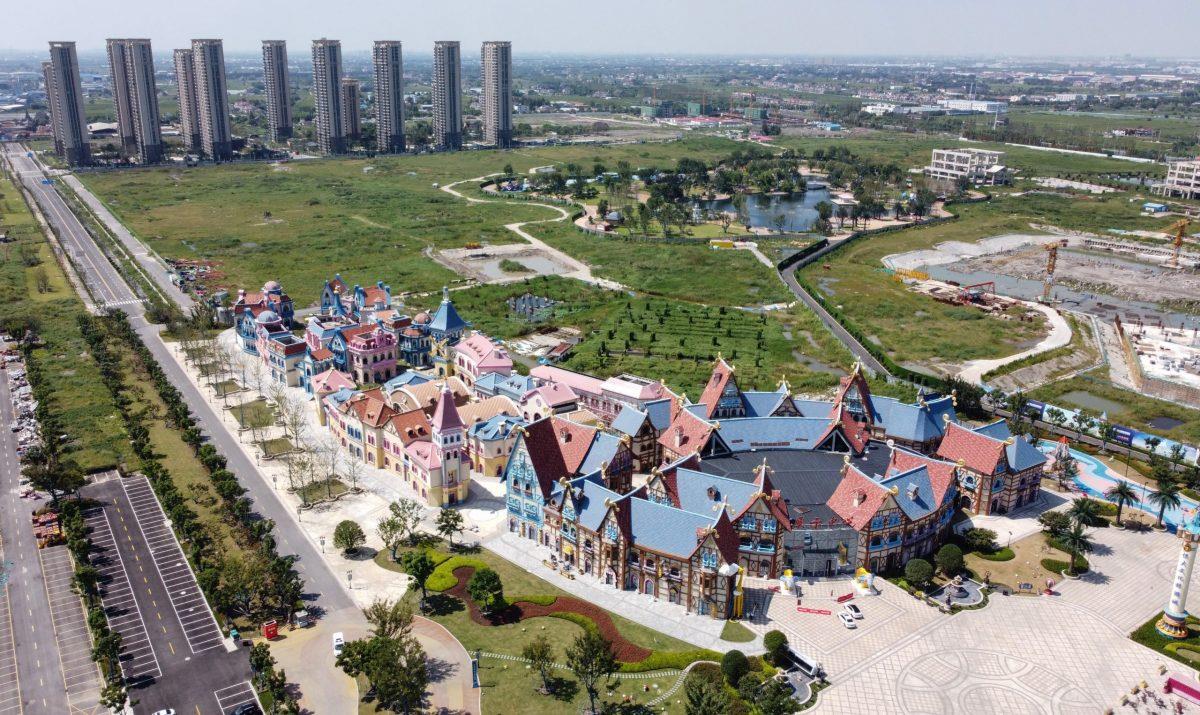(MENAFN- Asia Times) The bankruptcy of Evergrande Group, the world's most indebted property developer, is well predicted but whether the negative impact on the Chinese society and Economy can be minimized is another problem.
As Beijing has decided not to offer Evergrande a bailout, it's inevitable that the Shenzhen-based group will have to undergo debt restructuring and eventually go bankrupt, according to an expert specializing on state-owned assets. At this stage, Guangdong provincial and Shenzhen municipal State-owned Assets Supervision and Administration Commission (SASAC) should not intervene, the expert said.
Once Evergrande is declared bankrupt, suppliers, contractors, homebuyers and wealth product buyers would be compensated first due to social stability concerns while financial institutions, including Chinese banks and foreign investors, would be served later, some analysts said.
On Friday, shares of Evergrande fell 11.6% to close at HK$2.36 (33.8 US cents). The shares rebounded by 17.6% on Thursday after some Chinese banks are said to have allowed Hengda Real Estate, the property development arm of Evergrande, to delay its loan repayments.
“Hengda Real Estate announced an interest payment on one of its onshore corporate bonds according to the OTC arrangement,” Lung Siufung, a property analyst at CCBI International Securities, said in a research report on Thursday.“We do not have details on the payment terms but we believe the company and the regulator will strive to avoid a technical default.”
On September 14, media reported that China's Ministry of Housing and Urban-Rural Development had informed domestic banks that Evergrande would not be able to make loan interest payments due Monday.
CCBI Group, parent of CCBI International Securities, has had an investment banking relationship with Evergrande, according to the research report.
Lung said a more concrete resolution would probably be announced soon as the interest payment on some of Evergrande's US dollar bonds was due Friday.
Until now, global investors have not been informed by Evergrande about whether they would be paid an interest of US$83.5 million of the bonds they bought. The company has a 30-day grace period to make payment before any event of default can be reported.

A woman cries as she and others gather at the Evergrande headquarters in Shenzhen. Unpaid wealth product investors have protested in front of the building. Photo: AFP Noel Celis
Li Jin, chief researcher at the China Enterprise Research Institute in Beijing and an expert at the news center of the State Council's SASAC, wrote in an article on Thursday that the central government should and could not rescue Evergrande as it would cost about two trillion yuan (US$309 billion), which is equivalent to 2% of China's gross domestic product or 14% of the country's tax revenue.
“Related government departments and financial institutions must prepare for Evergrande's bankruptcy and restructuring. Evergrande should seek for buyers and rescue itself,” Li said, adding that Evergrande's vehicle businesses, Hong Kong projects, Shenzhen urban redevelopment projects and property management arm were ready for sale.
“The possibility that Evergrande will be acquired by others should not be ruled out. But these acquisitions, done either by state-owned-enterprises or private companies, must be market-oriented,” Li said.“Companies will only buy Evergrande's assets after all non-performing assets are stripped off. Evergrande should handle the remaining bad assets by itself, some of them will go bankrupt.”
Li praised Evergrande's group chairman Hui Ka-yan for having promised a full resumption of the construction of his company's property projects. He added that at this stage Guangdong provincial and Shenzhen municipal SASACs should not intervene into Evergrande's crisis.
He said China's financial system would be hit by Evergrande's bankruptcy but the damage would not be as big as that of Lehman Brothers in 2008. He said Chinese banks had Evergrande's land reserves as collateral so their losses would not be significant.
Commenting on Evergrande's United States dollar bonds, Li said any default of these bonds would hurt Chinese firms' credibility to raise fund overseas in future. However, he said it would not threaten the safety of China's foreign exchange reserves as the country would continue to be able to replenish its reserves with trade surplus.
Bankruptcy procedure According to usual bankruptcy procedure, a liquidator would freeze and retain the assets of a bankrupted company, sell these assets at the best prices and repay the creditors according to their priority. Usually, secured creditors such as banks rank the top, following by the creditors who filed for the liquidation, official departments that handle the procedure, the liquidator and the company's employees. Unsecured creditors such as suppliers, customers and leasers will rank the last.

The halted Evergrande Cultural Tourism City project in eastern Jiangsu province. Analysts say projects will restart. Photo: AFP / Vivian Lin
Since August, some of Evergrande's wealth product investors had complained that they could not get back their money after the products they bought matured. They held protests in front of the company's Shenzhen headquarters. In mid-September, the scale of the protests expanded. Homebuyers in different cities also protested because Evergrande had not delivered their apartments on time.
Over the past few weeks, Hui has repeatedly said that he would ensure that suppliers and contractors would be paid while homebuyers would be delivered their apartments. Last month, Evergrande started selling property units at discounts to suppliers and contractors. The company has recently launched a scheme for its wealth product buyers to convert their investments into real estate.
“Delivery to homebuyers and payments to contractors and suppliers is likely to be given priority in the interests of socioeconomic stability. The next step is likely the restructuring of bonds, bank loans, and other types of loans by extending expiry dates to avert technical defaults,” Lung said.
Lung said Evergrande's remaining 200 million square meters of land reserve would resume construction and sales either by Evergrande or through other state-owned-enterprises or large-scale developers in the event of disposals or a capital injection.
On September 17, an unnamed analyst wrote an article on Chinese media that Evergrande still needed 100 billion yuan of cash to pay its debts, even if the company could sell its assets and replenish its liquidity quickly in the best case scenario.
“The chance that Evergrande will go bankrupt is high…but when it is declared, it will be called 'soft-landing' due to its possible large systemic risks,” said the author of the article, which has been widely circulated by Chinese websites.“Regarding to the priority of creditors, we think suppliers and contractors should stay on top while financial institutions should have to queue up.”
Citing some sources, the author said the state-owned CITIC group would take over Evergrande's assets and had already appointed an auditor to evaluate the amount of liquidable assets, mainly the urban redevelopment projects in Shenzhen. He also said Hengda Real Estate would be sold at above 30 billion yuan but its valuation might decrease if it had to compensate Evergrande's wealth product buyers.
Read: Evergrande shares surge as collapse risk eases
MENAFN25092021000159011032ID1102861281
Legal Disclaimer:
MENAFN provides the information “as is” without warranty of any kind. We do not accept any responsibility or liability for the accuracy, content, images, videos, licenses, completeness, legality, or reliability of the information contained in this article. If you have any complaints or copyright issues related to this article, kindly contact the provider above.